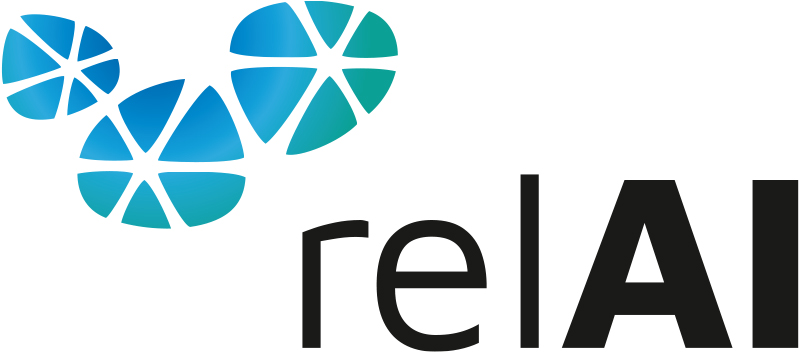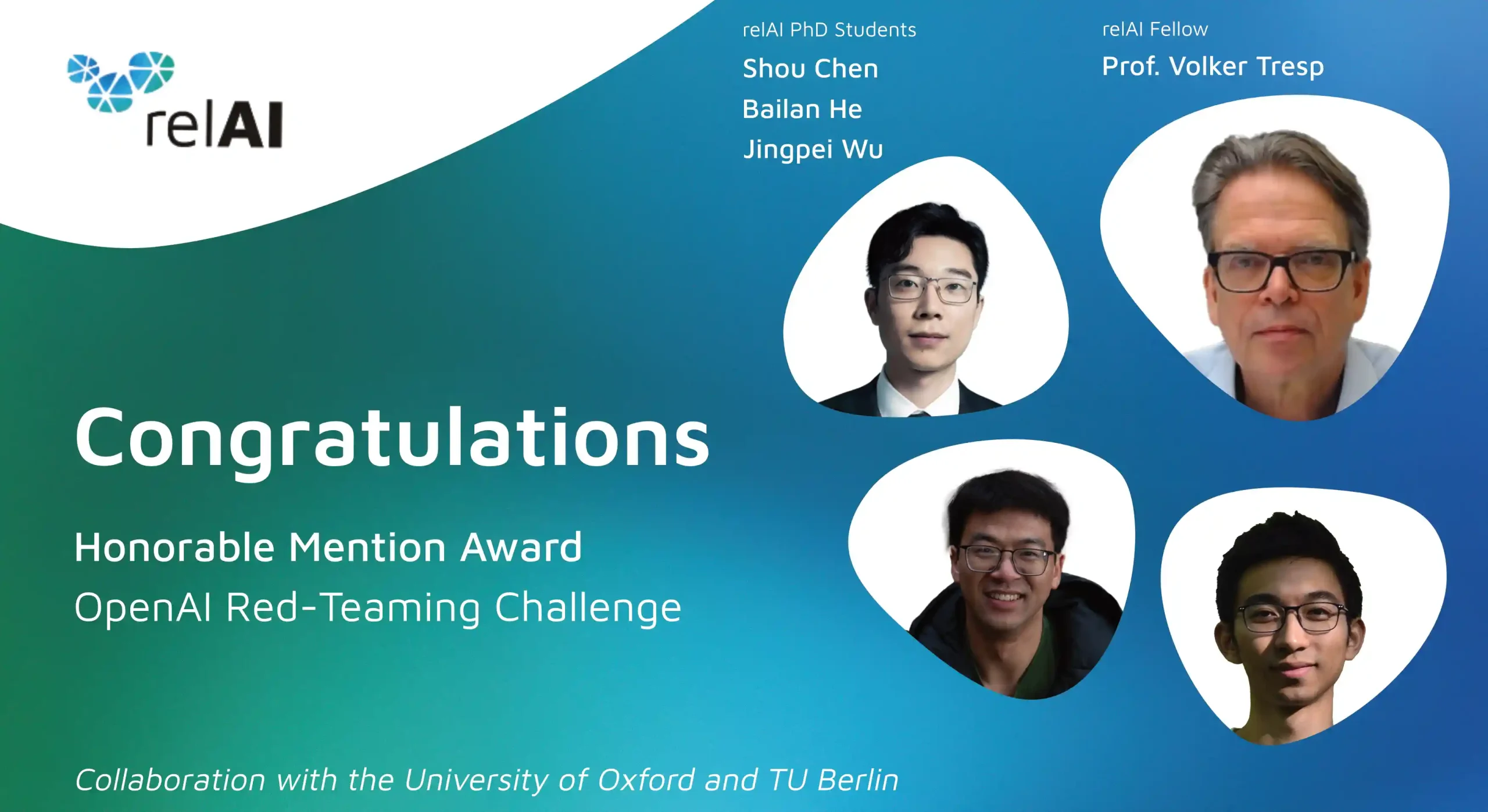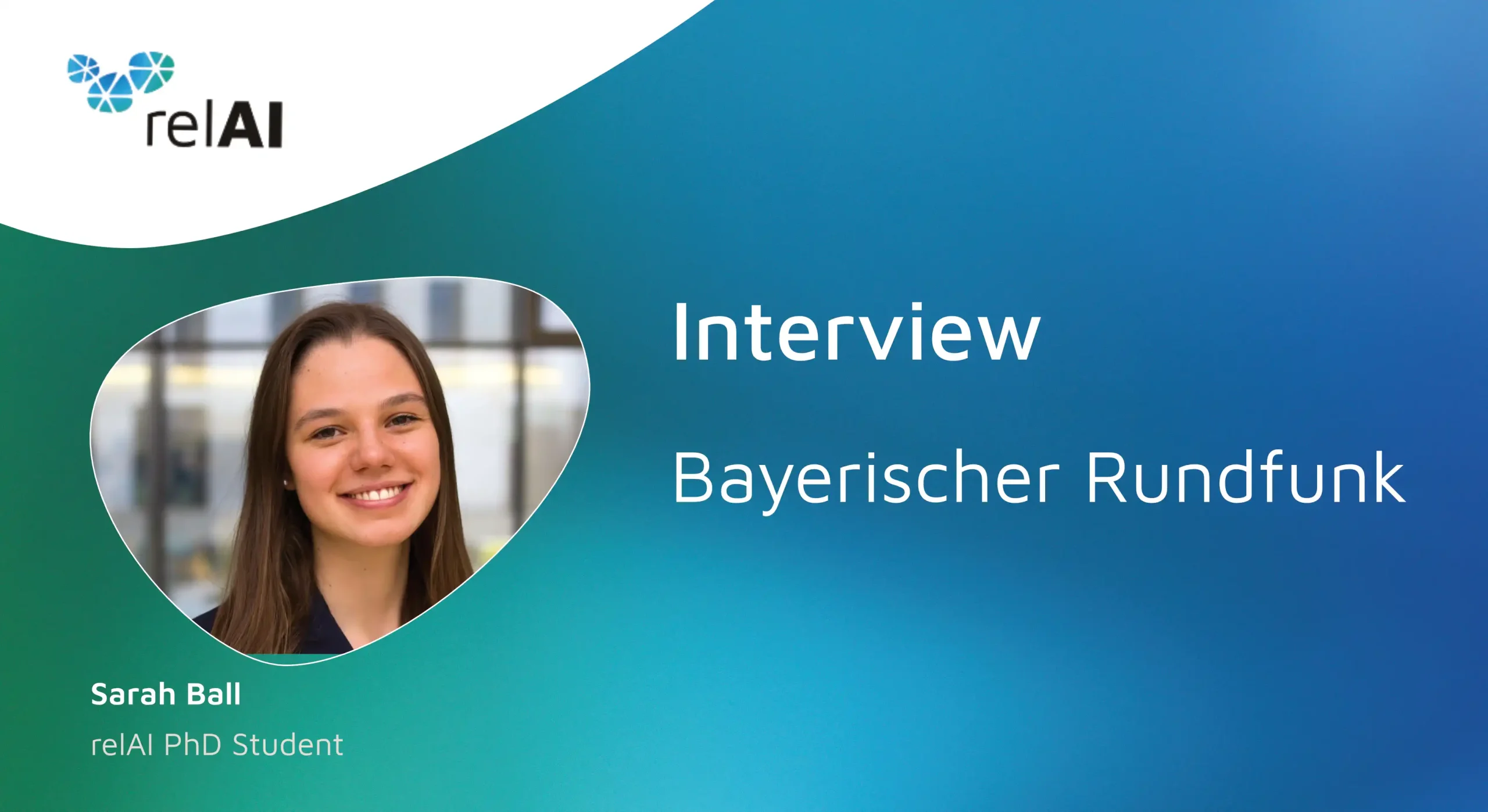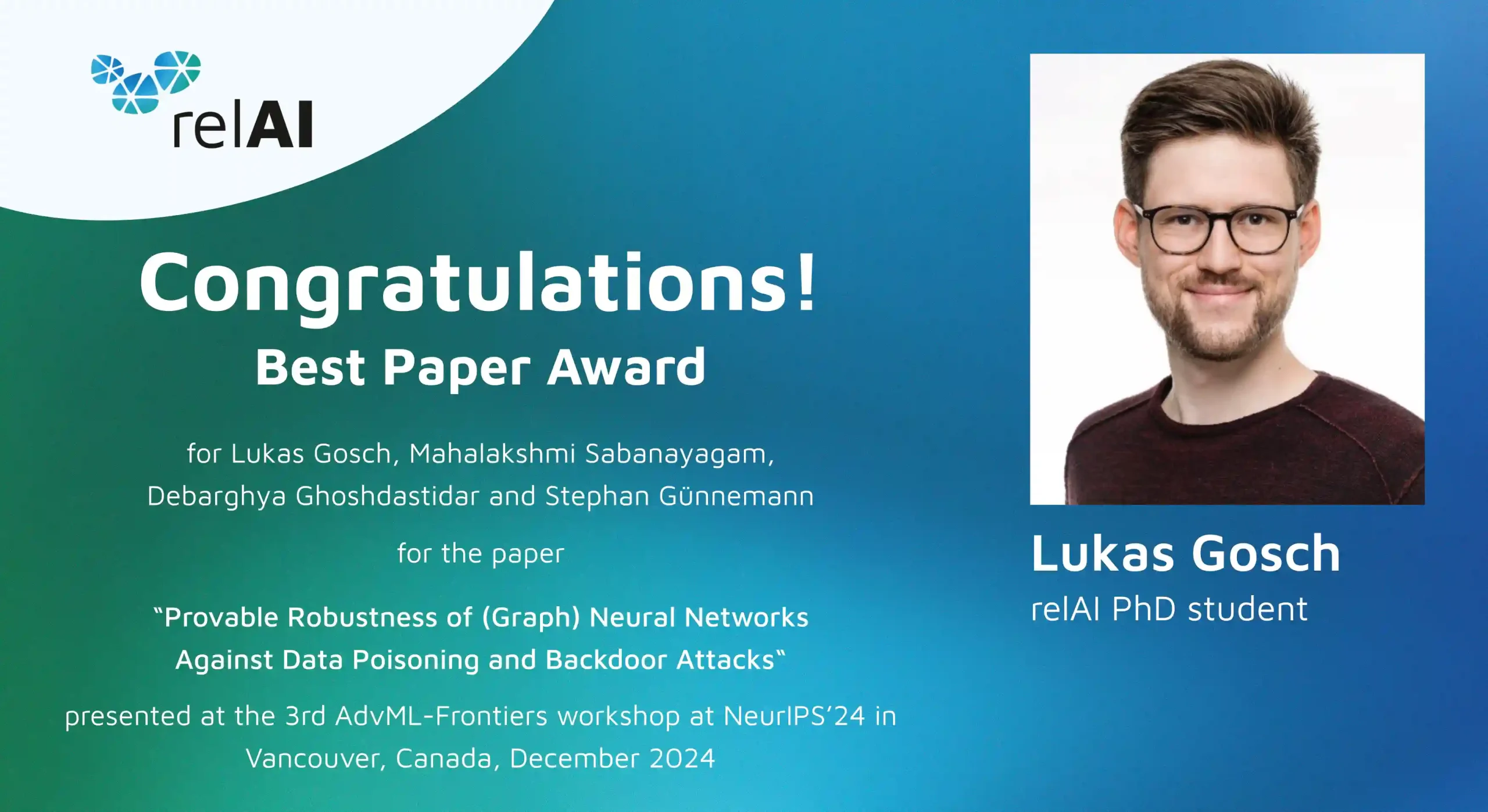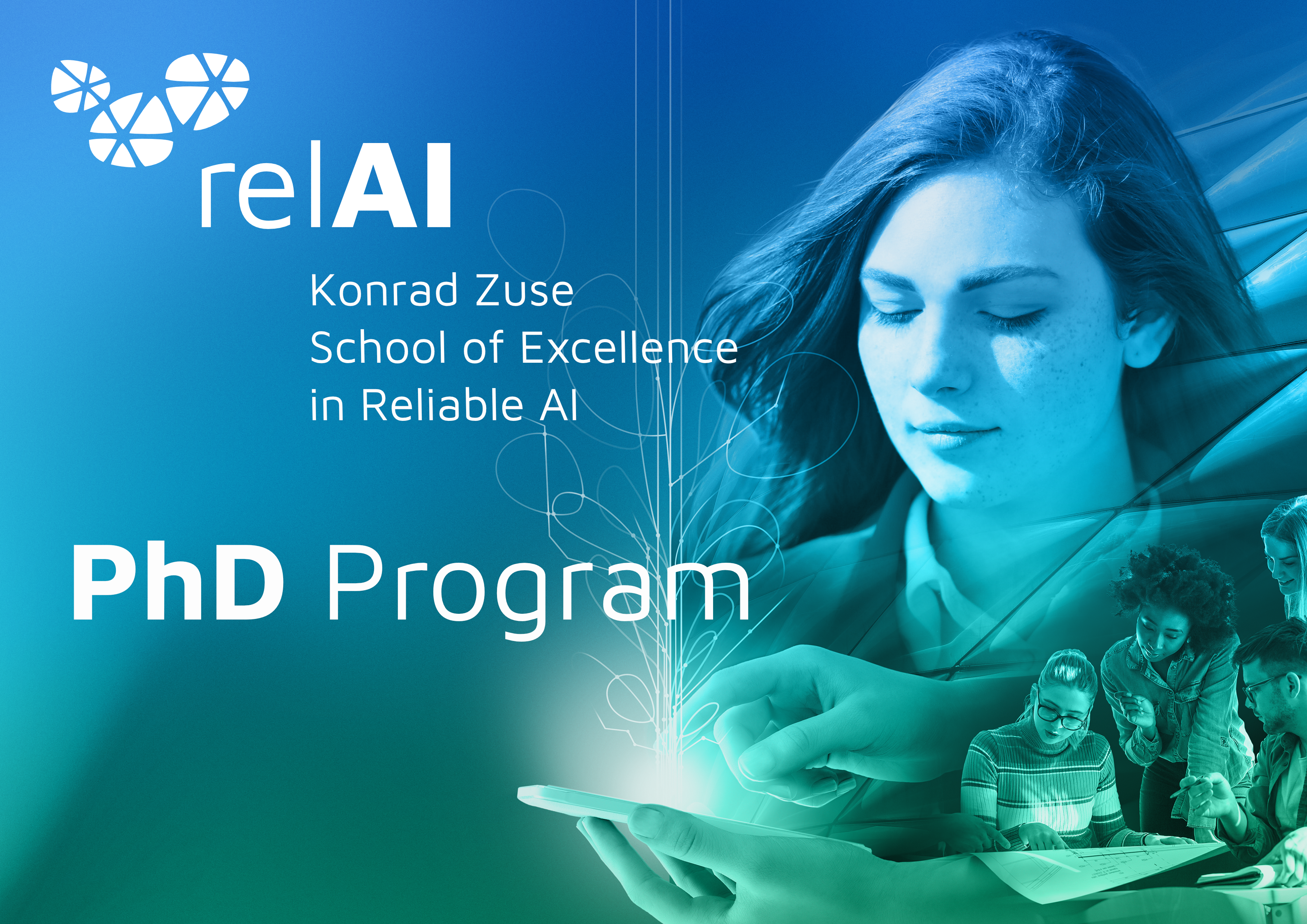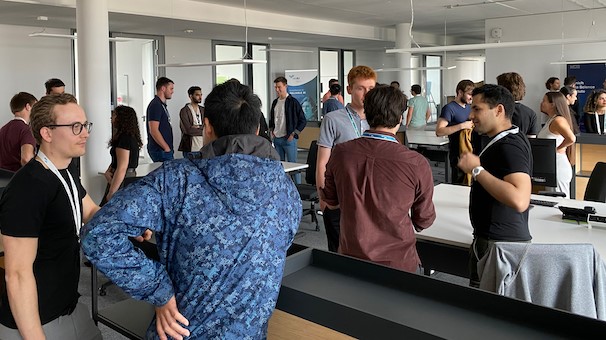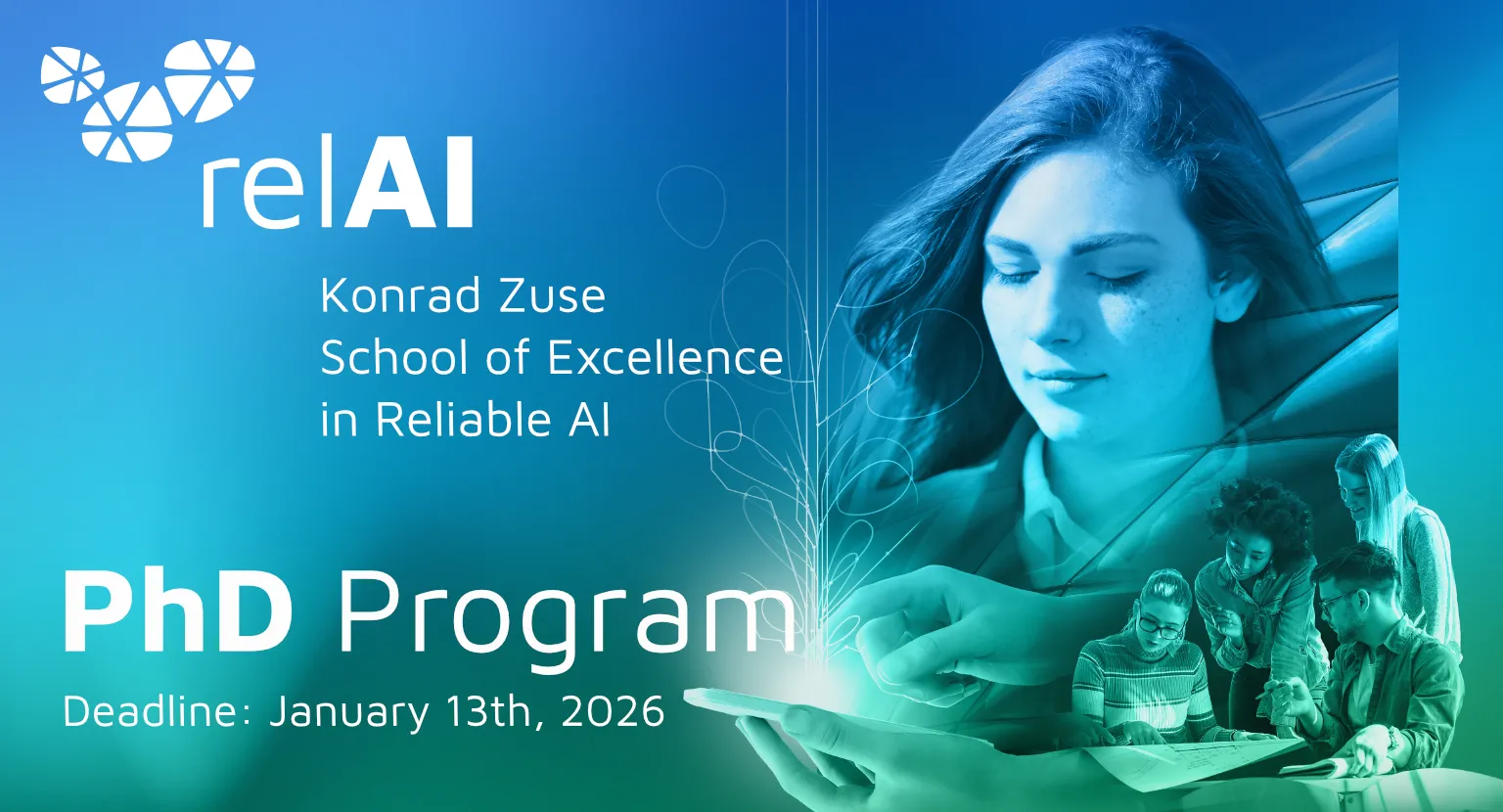
We are excited to announce that the call for applications to the PhD program 2026 of our Konrad Zuse School of Excellence in Reliable AI (relAI) is now open!
The novel, innovative PhD relAI program offers a cross-sectional training for successful education in AI including scientific knowledge, professional development courses and industrial exposure, providing a coherent, yet flexible and personalised training.
Funded applicants will receive a full salary for three years, including social benefits (TV-L E13 of the German public sector). They may receive additional support through travel grants for conference attendance, research stays, or home travel. Doctoral students are hosted by a relAI Fellow who helps them to define their research project. Depending on the affiliation of this hosting fellow, they enrol at TUM or LMU.
We highly encourage you to apply if you have:
- an excellent master’s degree (or equivalent) in computer science, mathematics, engineering, natural sciences or other data science/machine learning/AI related disciplines;
- a genuine interest to work on a topic of reliable AI covering aspects such as safety, security, privacy and responsibility in one relAI’s research areas Mathematical & Algorithmic foundations, Algorithmic Decision-Making, Medicine & Healthcare, Robotics & Interacting Systems, or Learning and Education;
- certified proficiency in English.
📆 Application Deadline: January 13th, 2026
🔗 Apply now: www.zuseschoolrelai.de/application
Please help us in spreading the word, especially to excellent international candidates.
